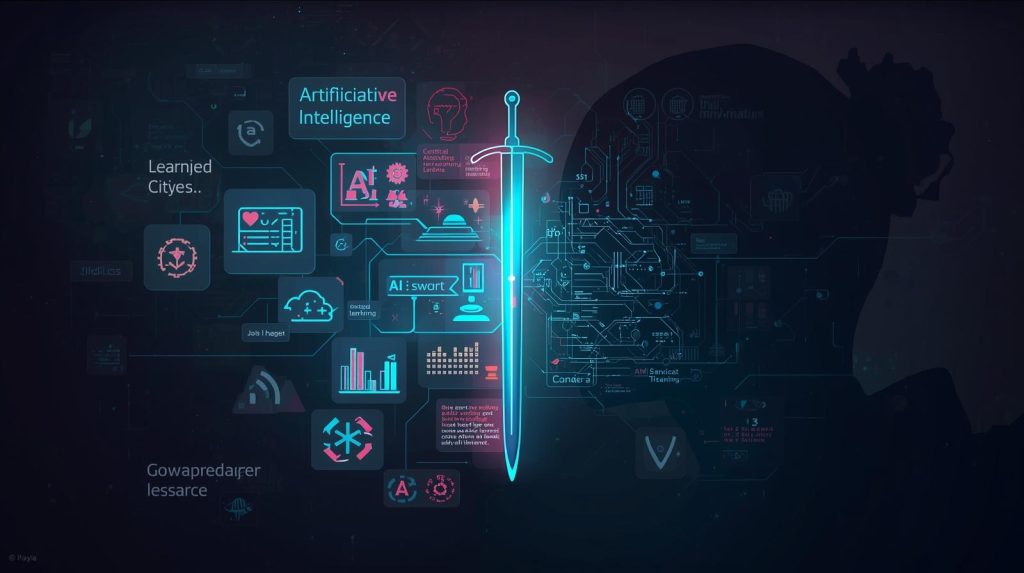
Artificial Intelligence: A Double-Edged Sword?
We live in a world increasingly shaped by Artificial Intelligence (AI). From daily conveniences to groundbreaking innovations, AI is transforming the way we live, work, and connect. But is this technological marvel all sunshine and rainbows? In this article, we’ll explore both the exciting potential and the serious concerns surrounding AI, uncovering its true impact on society.
The Rise of AI: What It Really Means
Before diving into the pros and cons, let’s define AI. Artificial Intelligence refers to computer systems capable of performing tasks that usually require human intelligence—such as learning, problem-solving, decision-making, and even creativity.
AI isn’t one-size-fits-all. It exists in different forms, each serving distinct purposes:
- Narrow or Weak AI: Built for specific tasks, such as playing chess or recommending movies. Most AI today falls into this category.
- General or Strong AI: Hypothetical AI with human-level intelligence and adaptability. Still a concept rather than reality.
- Super AI: A future possibility where AI surpasses human intelligence in every way. This remains a hot topic for debate and speculation.
The Upsides: AI’s Transformative Power
AI’s advantages span across industries, reshaping the way we approach challenges and opportunities.
1. Boosting Efficiency and Productivity
AI automates repetitive tasks, allowing humans to focus on creativity, strategy, and innovation. Industries from manufacturing to customer support benefit from improved productivity.
2. Transforming Healthcare
From faster and more accurate diagnoses to personalized treatments, AI revolutionizes healthcare. It helps analyze medical data, detect diseases early, and speed up drug discovery.
3. Smarter Transportation
Self-driving vehicles aim to reduce accidents, save fuel, and make travel more accessible. AI also helps design smarter traffic systems for growing urban spaces.
4. Personalized User Experiences
From Netflix recommendations to online shopping suggestions, AI customizes content and services to fit individual needs, improving satisfaction and engagement.
5. Accelerating Science
AI processes massive datasets in record time, enabling breakthroughs in climate research, space exploration, and genomics that humans could never achieve alone.
The Downsides: Challenges and Risks of AI
Yet, despite its promise, AI raises challenges that can’t be ignored.
1. Job Displacement
Automation threatens jobs in industries ranging from retail to logistics. Without reskilling and upskilling, many workers risk being left behind.
2. Algorithmic Bias
When AI learns from biased data, it can replicate and amplify unfair practices—affecting hiring, lending, and even law enforcement decisions.
3. Privacy Concerns
AI often relies on massive amounts of personal data, sparking concerns about misuse, surveillance, and data security. Strong regulations are needed.
4. Autonomous Weapons
AI-driven weapons raise global security and ethical concerns, fueling debates about the need for international bans and treaties.
5. Existential Risks
Though theoretical, the idea of superintelligent AI going beyond human control has experts urging caution, research, and global governance.
The Path Forward: Building Responsible AI
To truly benefit from AI while minimizing risks, we need responsible development and deployment:
- Ethical frameworks & regulations: Clear global policies to guide AI use.
- Transparency & explainability: Making AI systems accountable and understandable.
- Data security: Protecting personal data from misuse.
- Bias reduction: Creating systems to detect and correct bias.
- Education & training: Equipping people with future-ready skills.
Conclusion: Balancing Promise with Responsibility
AI is a powerful double-edged sword. It holds the potential to revolutionize industries, improve human life, and unlock new possibilities. At the same time, it poses challenges that demand serious attention.
By prioritizing ethics, transparency, and human-centered development, we can shape an AI-powered future that benefits everyone. The question is not whether AI will define our future, but how responsibly we will guide it.
Stay connected with us on HERE AND NOW AI & on:

